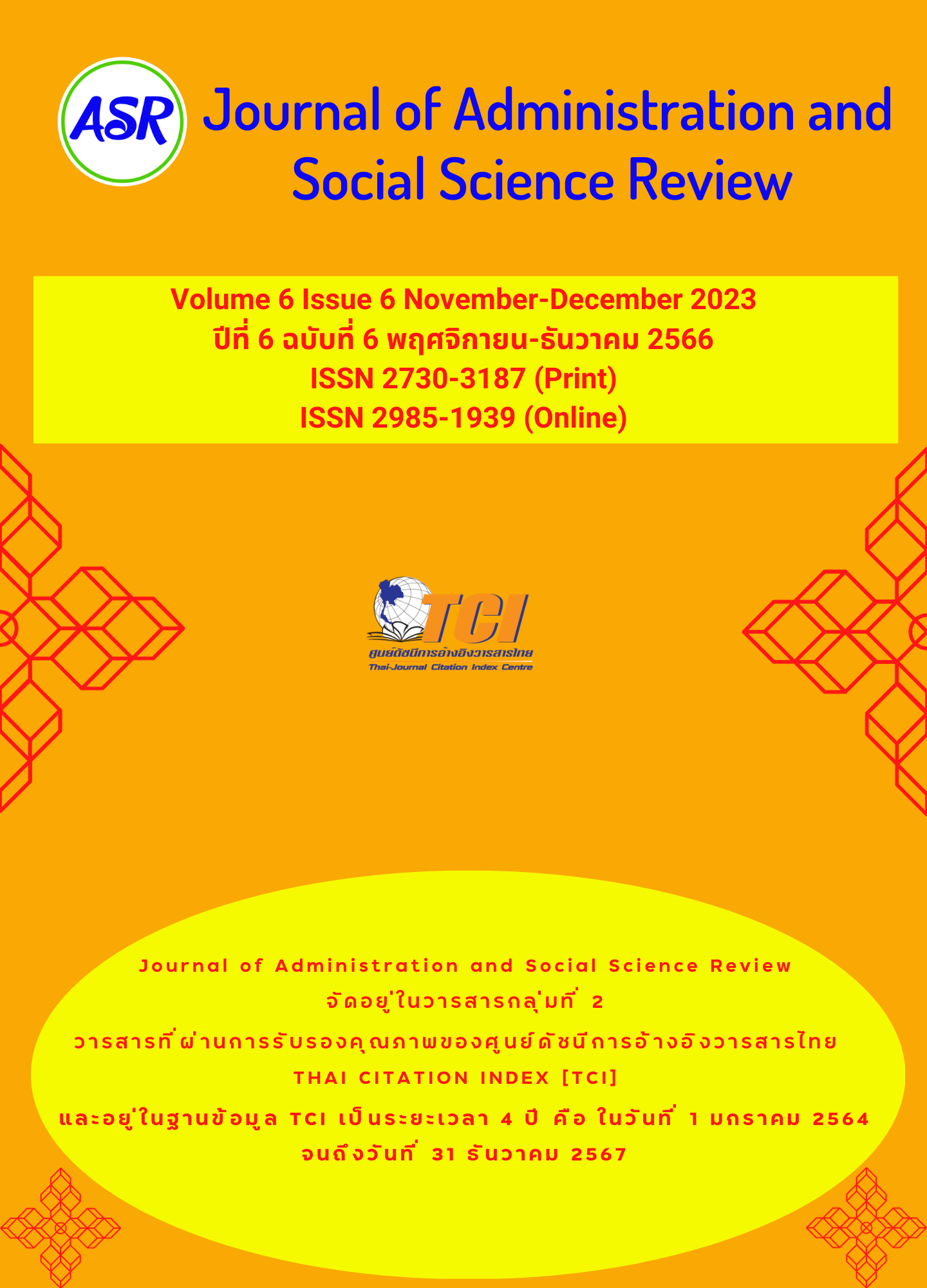Lessons Learned from Sufficiency Economy Network Management of the Agricultural and Education Sectors for Sustainable Development
Keywords:
sufficiency economy, sustainable development, network managementAbstract
This research aimed to examine the lessons learned in managing the Sufficiency Economy Network in the agricultural and education sectors for sustainable development. Qualitative data were collected from in-depth interviews and focus group discussions using semi-structured questions. Purposive sampling techniques were used to obtain a sample of 30 people with experiences and successes as a role model in driving network based on the Sufficiency Economy Philosophy (SEP) in the agricultural and education sectors. The results revealed that driving network in the agricultural sectors based on the SEP typically concentrated on the Area-based Approach, with many government agencies, the private sectors, and organizations providing supports through community network mechanisms. The emergence of networks in the agricultural sectors had a bottom-up nature. Most exemplary community networks went through crises and resolution experiences. The natural leaders were, those successful locally, as a role model for the community. People in the community followed and became a sub-network supported by the government agencies appropriately for the context of community. It created a sustainable community network.
As for driving development on the SEP networks in the education sector, it aimed to cultivate students with sufficiency mindset through the development of the curriculum, created the learning environment and built an academic network with the Ministry of Education and affiliated the agencies playing an important role as the main driving unit. The emergence of the main network in education sector had a top-down nature starting from the Ministry of Education. The main obstacles in driving the development based on the SEP in the education sector were the frequent changes in policies from the Ministry and discontinuity in school management due to the relocation of the school directors or SEP leading teachers.



